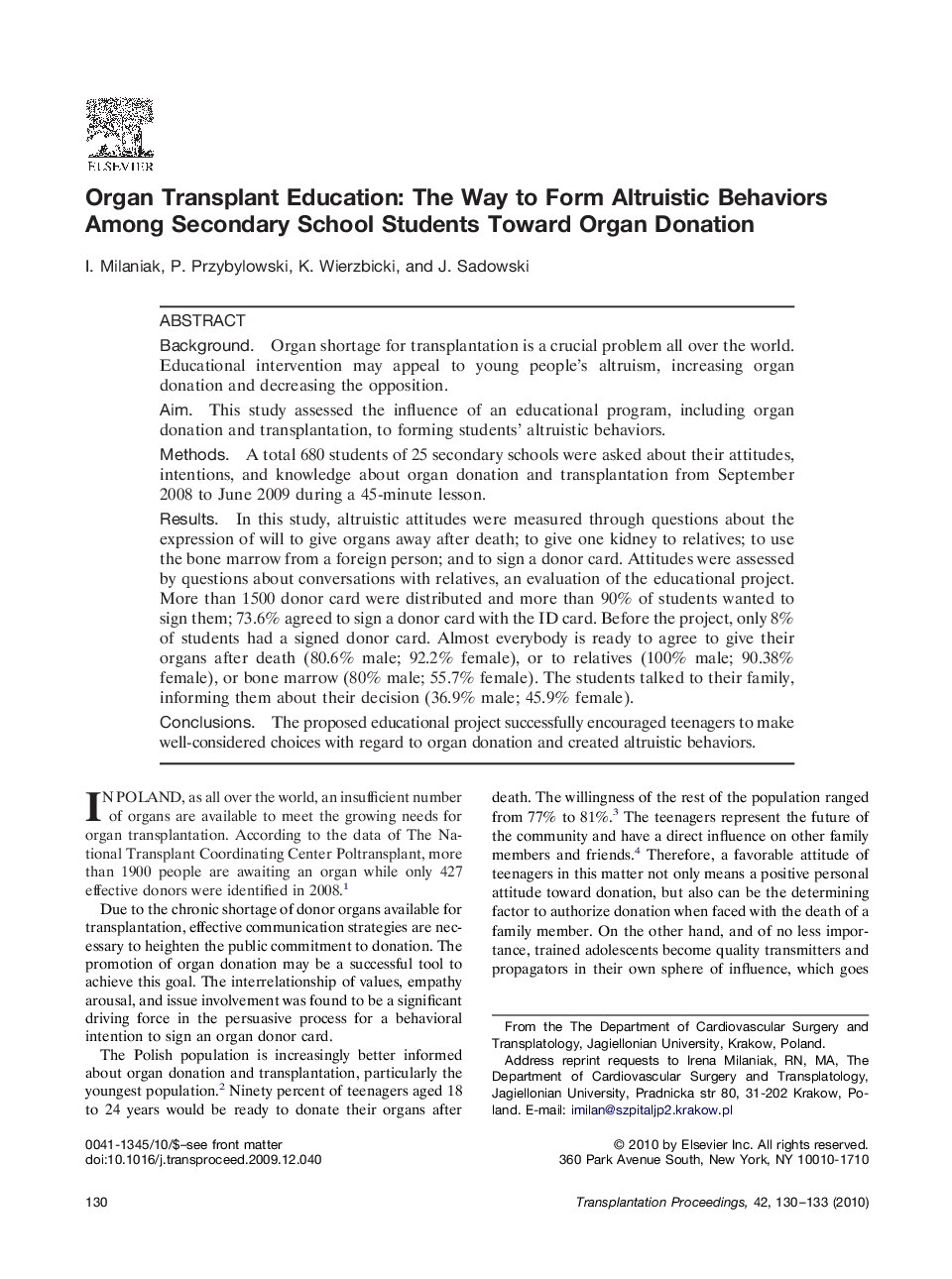| Article ID | Journal | Published Year | Pages | File Type |
|---|---|---|---|---|
| 4260836 | Transplantation Proceedings | 2010 | 4 Pages |
BackgroundOrgan shortage for transplantation is a crucial problem all over the world. Educational intervention may appeal to young people's altruism, increasing organ donation and decreasing the opposition.AimThis study assessed the influence of an educational program, including organ donation and transplantation, to forming students' altruistic behaviors.MethodsA total 680 students of 25 secondary schools were asked about their attitudes, intentions, and knowledge about organ donation and transplantation from September 2008 to June 2009 during a 45-minute lesson.ResultsIn this study, altruistic attitudes were measured through questions about the expression of will to give organs away after death; to give one kidney to relatives; to use the bone marrow from a foreign person; and to sign a donor card. Attitudes were assessed by questions about conversations with relatives, an evaluation of the educational project. More than 1500 donor card were distributed and more than 90% of students wanted to sign them; 73.6% agreed to sign a donor card with the ID card. Before the project, only 8% of students had a signed donor card. Almost everybody is ready to agree to give their organs after death (80.6% male; 92.2% female), or to relatives (100% male; 90.38% female), or bone marrow (80% male; 55.7% female). The students talked to their family, informing them about their decision (36.9% male; 45.9% female).ConclusionsThe proposed educational project successfully encouraged teenagers to make well-considered choices with regard to organ donation and created altruistic behaviors.
